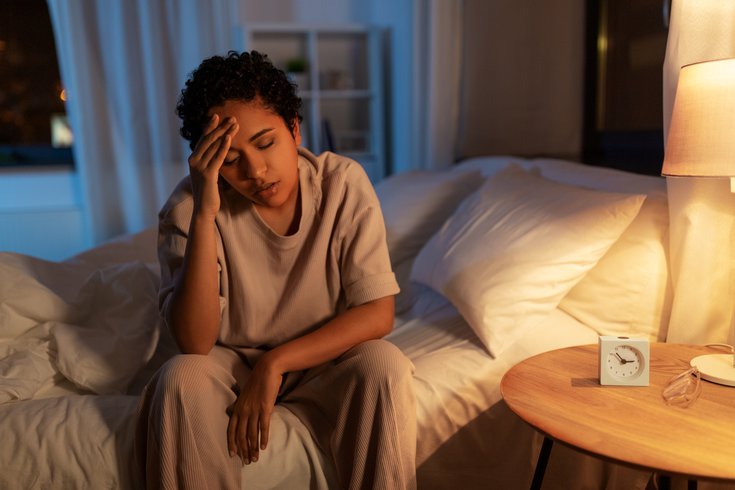
April 06, 2022
 Engin Akyurt/Pixabay
Engin Akyurt/Pixabay
Long COVID is defined by the U.S. Centers for Disease Control and Prevention as health problems that last four or more weeks after a COVID-19 infection.
Anywhere from 7.7 to 23 million Americans suffer the lingering effects of long COVID-19 – a chronic condition that can follow a coronavirus infection.
Despite the sheer number of people affected by this chronic condition, scientists still have more questions than answers about it.
There is no cure or specific treatment for it. Not even a test to diagnose it. More research is needed to get a better understanding of long COVID so therapies can be developed, scientists say.
To accelerate these efforts, the Biden administration has created a national interagency research action program devoted to the long COVID. In addition, the National Institutes of Health has launched a $1.15 billion four-year initiative to support research efforts.
Long COVID is defined by the U.S. Centers for Disease Control and Prevention as health problems that last four or more weeks after a COVID-19 infection. The World Health Organization's definition includes the caveat that the symptoms can't be explained by an alternative diagnosis.
With no definitive diagnostic test, there is no way to determine exactly how many people worldwide suffer from this chronic condition, but estimates range from 5% to 80% of those who had COVID-19. And it appears to affect people across all ages, genders, races and ethnicities.
Some people develop long COVID after a mild infection or one with no symptoms. For others, it follows a serious bout with the coronavirus.
Symptoms of long COVID include difficulty breathing, fatigue, difficulties sleeping, coughing, chest and stomach pain, headache, a racing heart and other cardiac complications, high blood pressure, joint and muscle pain, a feeling of having pins and needles under the skin, fever, dizziness, rash, diarrhea, a changed menstrual cycle, type 2 diabetes, hair loss, blurry or double vision, and a continued loss of sense of smell or taste.
A person's mental health also can be impacted through unexplained mood changes, brain fog, memory problems, difficulties with language and general cognition, and post-traumatic stress disorder.
Studies have shown that people with long COVID can develop depression and anxiety and, in some cases, psychosis and suicidal behavior. Some reports suggest that some people with long COVID-19 also develop opioid use disorder or another drug use problem.
Because some people face debilitating symptoms, the U.S. government said long COVID can be considered a disability under the Americans with Disabilities Act.
The full extent of possible long COVID symptoms are still not clear, nor is the length of time they persist. And scientists haven't been able to explain why some people get it while others do not.
The mechanisms behind long COVID are not understood either. Because the disease can affect any organ or organ systems, there could be numerous pathways.
For some people, long COVID develops after direct cell damage during the initial infection. For others, it is more the result of being hospitalized for a lengthy period of time with COVID-19. A hyper-stimulated immune system may also be to blame.
Gathering as much data on this condition is essential for the development of drug treatments and diagnostic tests.
A group of Swedish researchers are developing a predictive model to identify the people at most risk of developing long COVID. The hope is that it can be used to develop a blood test.
They found people who developed long COVID had decreased levels of two antibodies that the immune system uses to fight infections. These antibodies usually increase with the threat of an infection.
When combined with a person's age, asthma history and COVID-19 symptoms, these factors were 75% effective at predicting long COVID, the researchers said.
There are clinics that focus on treating people with long COVID. Primary care physicians are a good place to start too.
Current treatment focuses on identifying achievable goals in recovery, depending on symptoms. Patients are often given physical or occupational therapy, mental health counseling, and speech therapy.
One study found that getting vaccinated could help relieve symptoms for unvaccinated people with long COVID. The researchers found that people who got the vaccine were 54% less likely to have headaches, 64% less likely to report fatigue and 68% less likely to develop muscle pain.
Penn Medicine and other health care systems in the Philadelphia area have opened post-COVID recovery clinics.
Penn's Post COVID-19 Assessment and Recovery Clinic first assesses patients to determine their individual health and rehabilitation needs, including screenings to assess organ function. Then patients are referred to specialists for their specific health issues. Penn also has created a registry to track important clinical characteristics to advance research on Post-COVID syndrome.